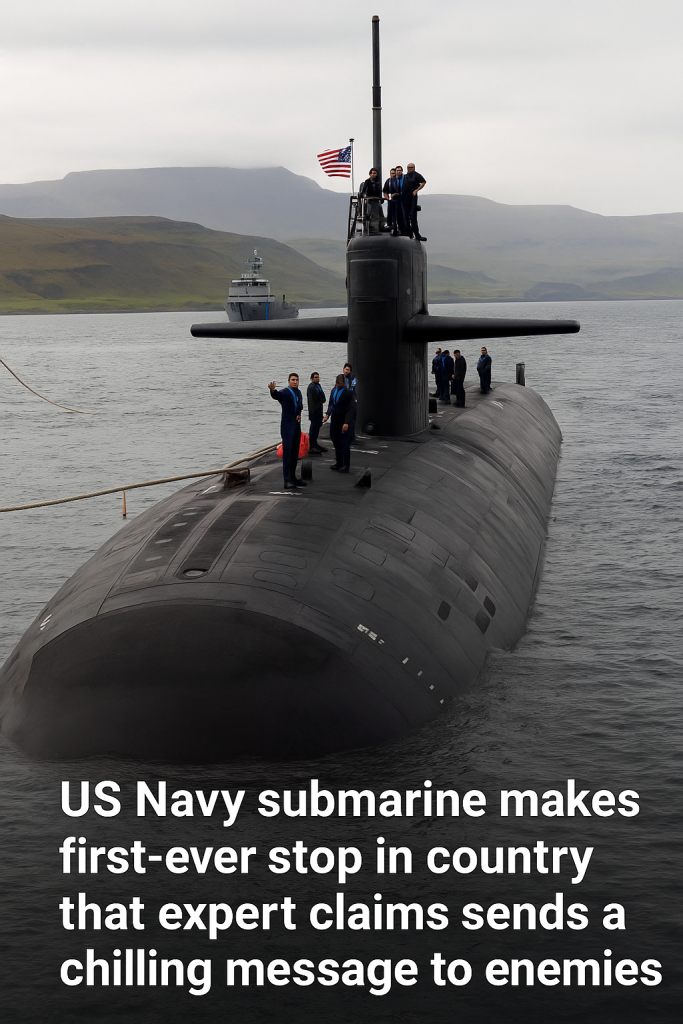In a move that experts warn could exacerbate escalating geopolitical tensions, a U.S. Navy submarine made a historic first-ever port call this week, sending what analysts are describing as a chilling message to rival powers. The unprecedented visit, involving a 70-meter American nuclear-powered submarine, marks a significant milestone in international military diplomacy — but also raises alarms about the potential for broader conflict, including fears of World War Three.
The destination of this remarkable military maneuver was Djibouti, a strategically located nation in the Horn of Africa that controls access to the Red Sea and vital maritime trade routes. To date, no U.S. Navy submarine has ever docked officially in Djibouti, a key logistics hub for U.S. and allied forces operating in the region. This 2024 port call is the first of its kind and has prompted a range of reactions from global defense analysts and government officials alike.
According to military experts, the submarine’s visit carries significant geopolitical weight.
“This visit is far more than a routine docking,” explained an international security analyst. “It is a clear message to adversaries such as China, Russia, and proxy groups operating in the region, demonstrating the United States’ ability to project undersea power into critical zones around the world that were previously off-limits.”
Djibouti’s location is critical as it is situated near the Bab-el-Mandeb Strait, a vital chokepoint through which a substantial portion of global maritime trade and energy shipments pass. The U.S. already maintains a significant military presence in the country, including Camp Lemonnier, but the inclusion of a nuclear submarine in the port underscores growing strategic stakes in the region.
For the submarine itself, this journey marks a historic milestone. Measuring approximately 70 meters, it represents the latest generation of attack subs, equipped with enhanced stealth and weaponry capabilities. The visit allowed resupplying and crew rest, yet the symbolic nature of the stop sparked widespread media and diplomatic attention.
However, this unprecedented port call has also ignited fears among certain observers that it could widen the risk of direct military confrontations. Social media platforms erupted with speculation and concern over what some have termed “WW3 fears,” reflecting anxiety over intensifying great power competitions.
International relations experts caution that while the visit is strategic, it could provoke escalations if perceived as a provocative power play rather than a stabilizing presence.
“Each new military maneuver in such contested regions increases the stakes,” said a geopolitical strategist. “Moves that are intended as deterrents can sometimes spiral into miscalculations, especially with underwater assets that are difficult to track and interpret.”
At a time when global tensions remain high over conflicts in Eastern Europe, disputes in the South China Sea, and sanctions regimes affecting multiple countries, the U.S. Navy’s groundbreaking stop in Djibouti adds another complex layer to an already fraught international security environment.
For now, the U.S. Department of Defense has emphasized the mission’s routine nature, highlighting its commitment to freedom of navigation and partnership with allies. Nonetheless, the strategic implications of this milestone endure, capturing attention worldwide as military analysts and policymakers weigh the risks and potential ramifications.
Whether this historic submarine visit will serve as a stabilizing step or a catalyst for deeper conflict remains to be seen, but it unequivocally marks a new chapter in naval operations, signaling the United States’ readiness to deepen its presence in geopolitically critical waters.



